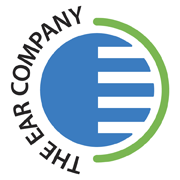It really can be a noisy world. Most of us rarely give thought to just how noisy our world is. I can think of instances where this became apparent to me. A power outage is often a good time to gain perspective. When we lose power in the office and the lights, computers, photocopiers etc. go off, it always amazes me as to how quiet it is. A good friend was just chatting with me remembering one of our great camping adventures in Algonquin Park. When I say adventure, that is precisely what I mean. We would typically canoe in deep into the park in order to get away from the casual campers and to find some peace and quiet. The down side of this meant long portage after long portage. Eventually, we would typically find great camp sites and have an exceptional time with friends. I recall one such trip where we were camping on a relatively small lake with virtually no one else at any of the other sites around the lake. That day I had been fortunate enough to catch a supper of speckled trout in a nearby stream and we feasted at supper time. After supper, my good friend Frank and I were at waters edge cleaning up some of our cookware so as not to attract the attention of the critters of Algonquin. We had paused momentarily to take in the tranquility and magnificence of the surroundings when we heard a rather unfamiliar and strange sound. At first neither one of us had any idea what this sound was but after a moment we both realized what it was that we had just heard. In the stillness of the evening what we had heard was the movement of air through the wings of a loon flying past us. How many times in my life had a bird flown past me with me never being cognisant of such a sound existing? Only due to the lack of other sound was I able to hear what was a virtual roar relative to the quiet that surrounded me.
Unless you happen to live in an area like Algonquin park, your world like mine is a noisy one. We are surrounded by all kinds of noise. For some, this noise can create all kinds of trouble. I have many patients with normal hearing that find the noise of this world excessive. Over the years, I have encountered many patients with head injury that have found the noise of traffic of the mall or the hockey arena etc. to be overstimulating. Many of these folks have had to avoid social settings of these other environments due to this great difficulty that they have.
In cases like this, I have found the prescription of a musician's ear plug to be a rather useful amplification of technology. The musician's ear plug is unlike other ear plugs in that they can reduce sound without leaving you feeling plugged up. You lose very little sound quality but simply turn down the volume. To be able to do this for my head injured or easily overstimulated patient can mean the difference between completely avoiding a difficult situation and functioning in the real world. I will see some of my patients out and about wearing their musician's earplugs at the hockey arena or the mall etc. functioning without the added stresses that noise can cause.
What is interesting is that this was not necessarily the application for this technology that was envisioned and quite frankly not what I learned during any of my graduate or post graduate work but rather a common sense solution that has worked wonders for my patients. I ran into a neuro-psychologist that sends me patients with these issues on a regular basis and she told me that neither was this an approach that she found along her educational pathway either but we both agreed that it has worked wonders for our patients.












